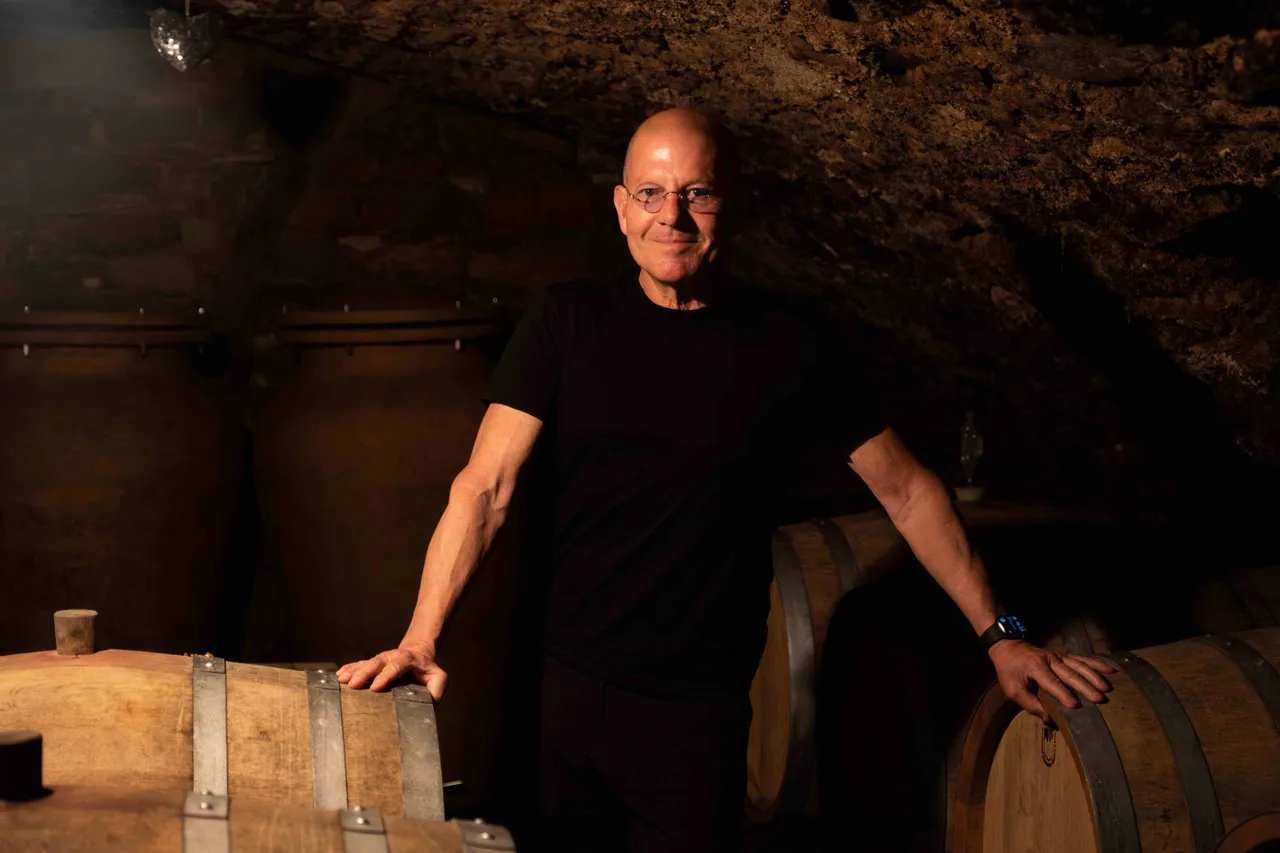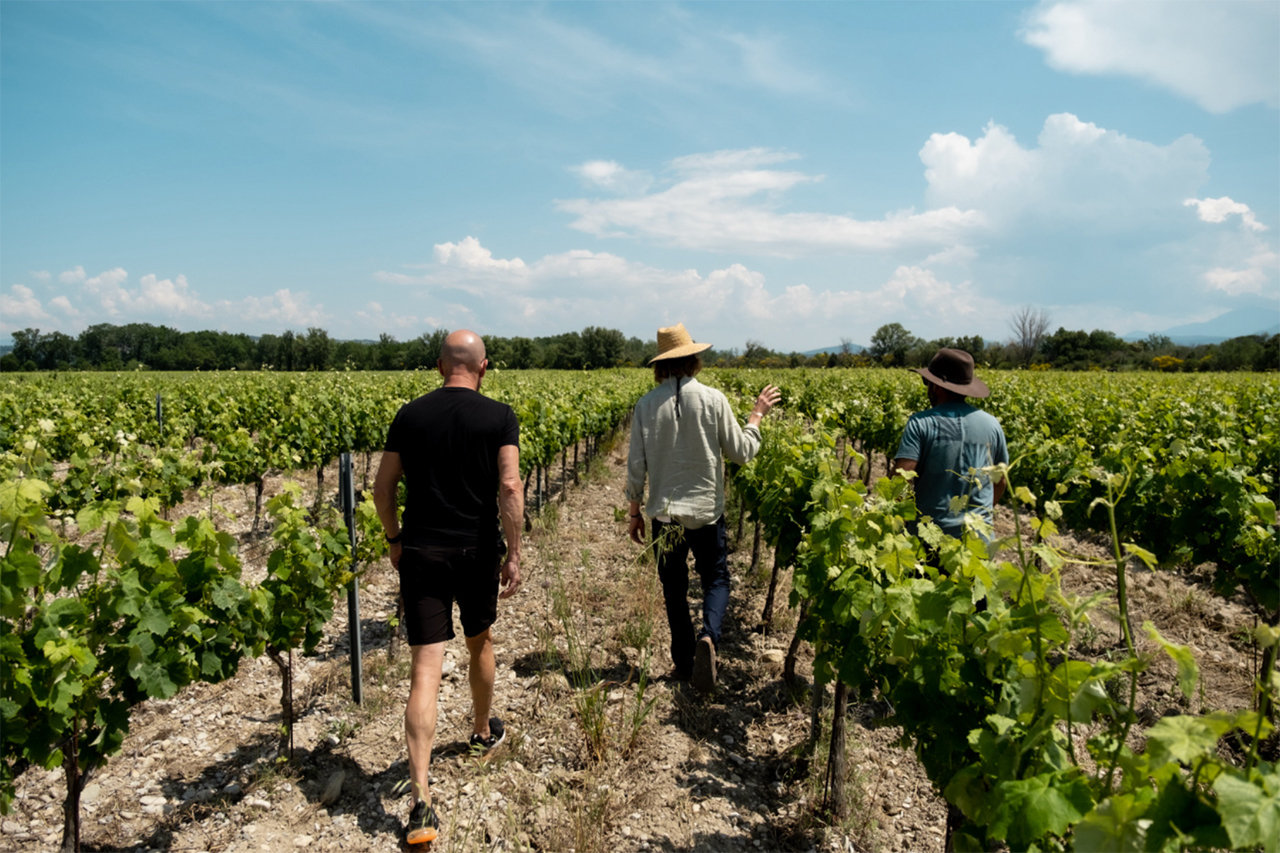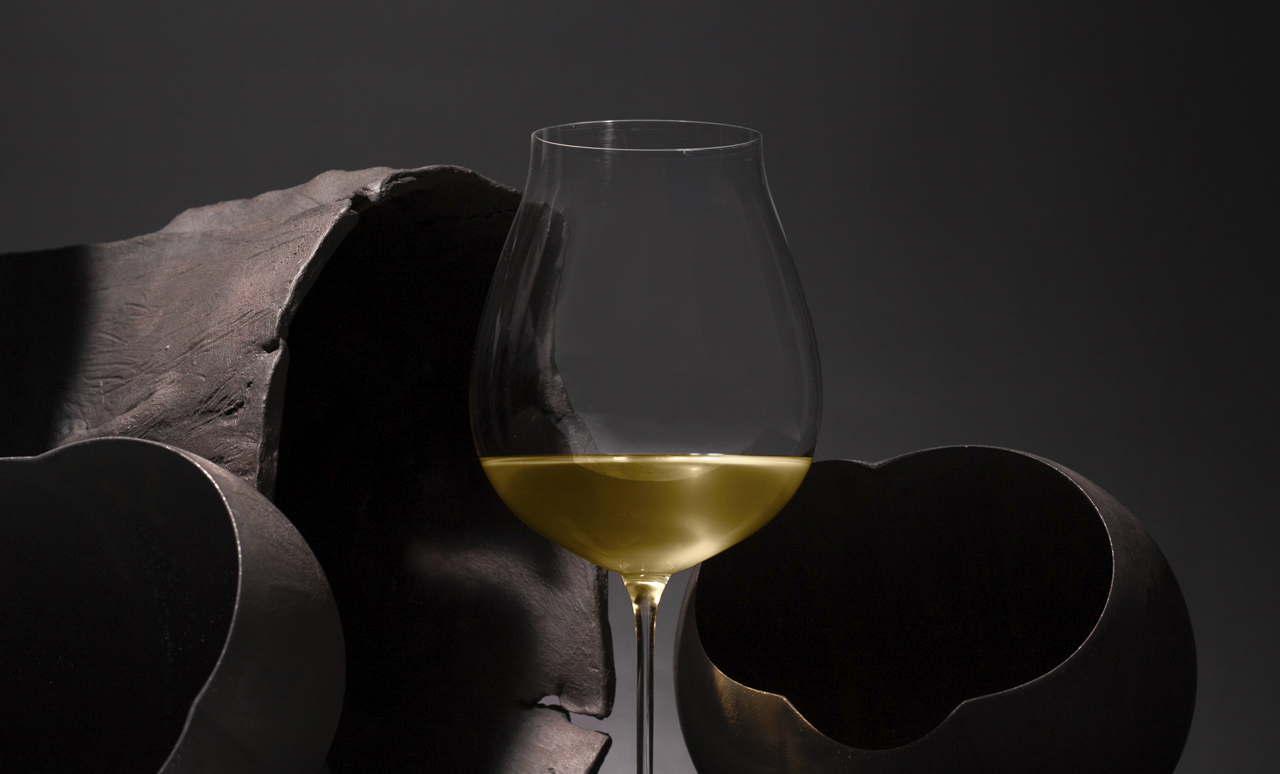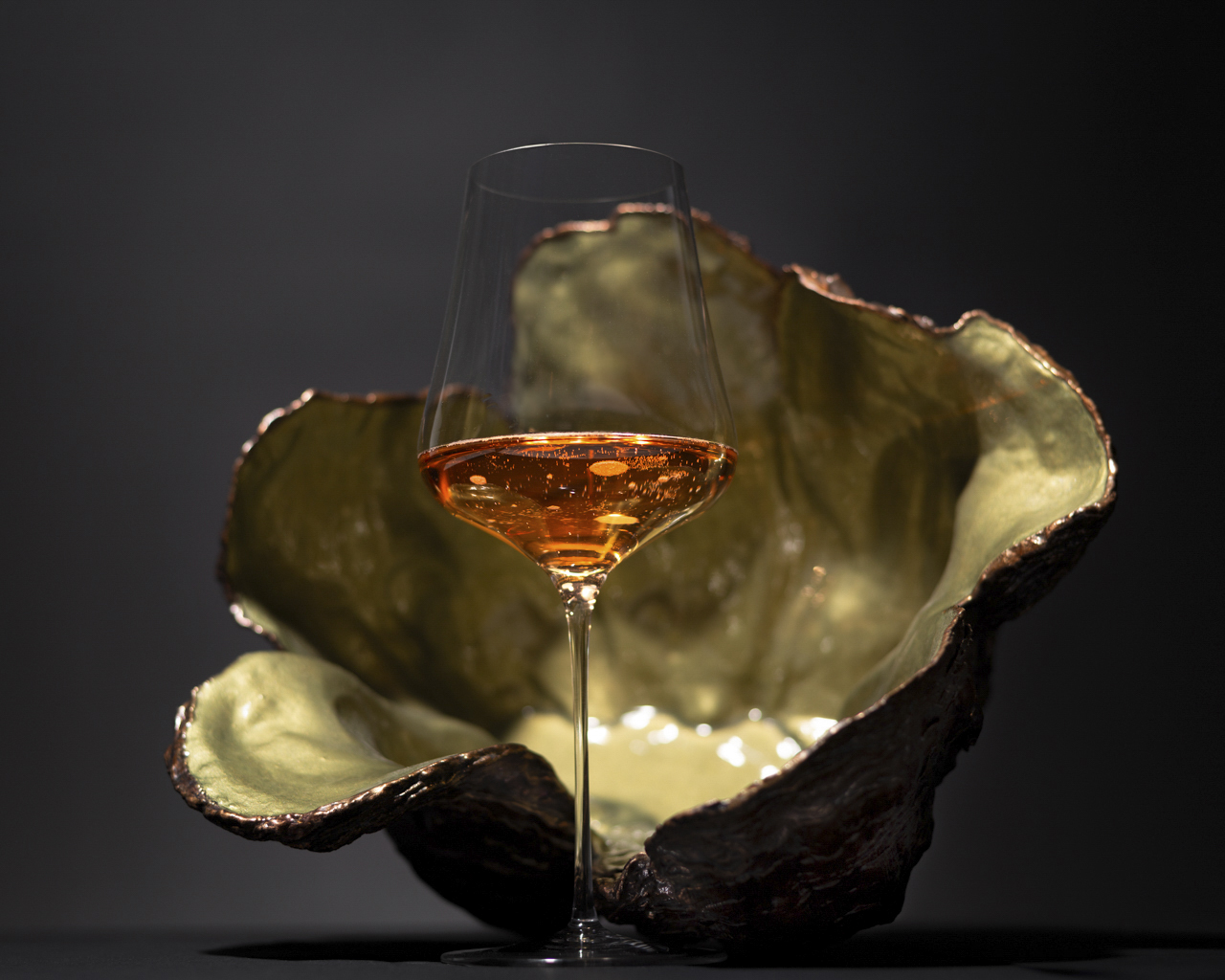These days, it can feel like a luxury to find food or drink that you can enjoy while also being conscious about what you consume.
This rare luxury is surprising: only about 5% of the world’s wines are grown from organic vines. And in California, for example, only 4% of the vineyards are farmed organically. On top of all this, it’s exceedingly difficult to find organic wines that taste luxurious and delicious.
But that is the mission of Dry Farm Wines.

Todd White – Founder, Dry Farm Wines
It started in 2015 when Todd White founded the company. He loves to share his story – because he believes many people have likely had a similar experience.
“I became very fanatical about what I put in my body,” White said. “I wanted to increase my longevity and improve my quality of life. How could I achieve better memory, better sleep, and elevated performance?”
As an entrepreneur, art collector, and frequent global traveler, White’s wellness and fitness goals meant he had to make significant changes. He reevaluated his nutrition, food, and alcohol intake – everything that went into his body. He decided to go ketogenic and start a strict protocol of intermittent fasting (eating once every 24 hours), which he still follows today. But how did alcohol fit into this new lifestyle? As someone who absolutely loves wine, he had a conflict. He couldn’t find a wine that fit his lifestyle goals, and he considered giving it up.
“I really didn’t want to give up my wine, but I also wanted to make sure I found only the best quality for my body.”
So, he began doing extensive research on the winemaking process, beginning with commercial wine that he’d been drinking.
“I was shocked by what I found.”
First, he learned that nearly 60% of US-made wines are produced by just 3 companies, and that many large, commercial, monoculture vineyards tend to maximize capacity while destroying the soil by using farming chemicals like pesticides, herbicides, and fungicides – which have been shown to end up in the finished wine.
He also found that in the United States, there are 76 winemaking additives approved by the FDA. But wine companies are not required to disclose their ingredients or additives, so consumers have no way of knowing what’s actually in the wines they drink. While some of the additives are harmless and natural, he said that others are far more toxic, the most dangerous being dimethyl dicarbonate (DMDC), which is strongly toxic to humans in its raw form.
And his research showed that additives like preservatives and defoaming agents are used to provide commercial winemakers more control over the winemaking process, and additives and GMOs are also used to help wine companies to scale their production to meet consumer demand.
“I also learned that wine sugar and alcohol levels are scary.”
White said that to speed up production and maximize profits, most commercial wines are bottled with sugar in the bottle, before full fermentation has completed. One colorant additive called Mega Purple, a common additive used to improve the color and body of red wine, is 68% sugar. And generally, he found that wine companies tend to favor sweeter profiles in general, because most consumers like it. He sent the top 20 wines sold in the US to a wine lab and found that almost all of them registered with multiple grams of sugar – even red wine.
“You’d be surprised by the sugar content of most wines. Even if a wine is not technically ’sweet,’ it can still contain many grams of sugar,” White said.
The story on alcohol by volume (ABV) is just as bad, he said. White found that alcohol levels in commercial wine in the US have been climbing, and a recent study found they are sitting around 14% ABV. He said he’d always thought alcohol to be a dangerous neurotoxin, and that he was drinking too much of it – so finding this out was disconcerting.
“So, now I’ve discovered that this drink that I love – wine – probably has additives, high alcohol, and lots of sugar in it,” he said. “I had no idea what was in most of the wines I was drinking. And since I was trying to watch exactly what I put in my body, regular wine was not going to work for my protocol.”
A friend suggested White try European Artisan Wines, which were sugar free.
So White took Artisan Wines and sent them to a local wine lab and had them tested for sugar, alcohol, sulfites, and more. Then he sat down and tasted only the wines that were sugar free and lower than 12.5% alcohol.
“Wow! It was incredibly different… the taste, the purity, the entire experience,“ he said. “As a wine lover who drinks wine every night, I could totally see a difference between sugar free Artisan Wines and regular wines.”

Over the next few months, White explored Artisan Wines more deeply, and started sharing Artisan Wine with friends and everyone absolutely loved them. As he sought out the absolute best Artisan wine, he developed a list of personal requirements – which is now known as the Dry Farm Wines Certification for selecting the purest Artisan Wines on the planet:
-
- No sugar. Every bottle sold by Dry Farm Wines is ‘fully fermented’ – its natural yeasts having turned all the grape’s sugars into alcohol, making it sugar free.
- Lower alcohol. Dry Farm Wines are, at most, 12.5 percent ABV. Many are even lower. Higher alcohol content tends to drown out the finer notes in wine, and studies find that casual drinkers enjoy low-alcohol wine more for aromatic experiences.
- Organic, biodiverse family farms only. Dry Farm Wines only works with growers who prize biodiverse farming without man-made chemicals. Organic farming creates resilient grapes with a wide array of aromatic compounds, imparting personality to the wines.
- Living wines. Unlike commercial wines that have been sterilized and clarified, wine that’s been grown organically and bottled without filtering tastes alive – rich with bacteria and wild native yeasts which create a joyous complexity of aroma and flavor.
- Irrigation free. The ‘dry farming’ technique dispenses with artificial irrigation, with vines relying on natural rainwater and groundwater only with which to nourish themselves. This increases the health of the vine and the grapes, forcing roots to dig deeper to search for their own water. Dry Farm Wines estimates growers to be saving over seven billion gallons of water every year by not using irrigation.
- Native yeast. Dry Farm Wines are fermented with native yeasts because it’s the way wine has been made for thousands of years – the less man-made manipulation, the better. Yeasts turn the sugar in grape juice into alcohol through fermentation. Generally, there are two types of yeast: lab-grown and native. Lab-grown yeasts are engineered to produce certain flavors and profiles of wine. Native yeasts are naturally found on the skin of every grape. Most wine companies don’t use native yeast to ferment their wines because they are too unreliable, and they will die at higher alcohol levels.
- Rare varietals. Natural Wine growers plant and encourage the growth of ancestral, indigenous grapes that grow in their regions: Zweigelt in Austria, and Pineau d’Aunis in France are rare in the wine market, but make regular appearances in Dry Farm Wines’ collections. Most modern wine companies choose to plant the same grape varieties because they are famous: Pinot Noir, Cabernet Sauvignon, Chardonnay, and Sauvignon Blanc.
- Lab-tested transparency. At Dry Farm Wines, every wine is sent to a certified, third-party oenologist to make sure vintner and consumer know exactly what is in the bottle. Every wine also undergoes a rigorous, seven-step process to make sure it’s ready to share with the world.
- Taste. Ultimately, Dry Farm Wines’ obsession with quality comes down to taste. Each of the company’s wines needs to taste nothing less than delicious, and taste different from regular wines. Without heavy additives and artificial flavoring, the wine goes down smoothly. Wines taste fresh and pair better with food.

Todd White’s personal mission became Dry Farm Wines, now the largest curator of organic wine in the world – created to bring the best Artisan wines on the planet to a community of like-minded people who care about what they put into their bodies, and who are looking for a wine that makes them feel better and does not include chemicals and high levels of sugar or alcohol.
Dry Farm Wines is on a mission to bring the rare luxury experience of delicious, pure artisan wines to consumers – offering wine memberships or single pack options for consumers to its exclusive collections of prized, Artisan wines from all over the world. Dry Farm Wines does not sell in stores or restaurants, and only offers its wine to customers via its website, typically delivered in 5 days or less.
Dry Farm Wines is now enjoyed by Tastemakers, Art Collectors, Health Enthusiasts, Wine Lovers, European Travelers, Epicureans – and anyone else who enjoys the luxury of Artisan Wine.
Dry Farm Wines offers a membership program or single purchases. Memberships range from 1-, 2- or 3-month intervals and can be delivered to your selected address in 5 days or less. The membership program is the most popular choice, as it includes benefits:
- Exclusive 25% Member Pricing Courtesy
- Complimentary Shipping for all Member Orders
- Access to Allocated Wines Available to Members Only
- Priority Service From our Hospitality Concierge Team
- Invites to our National Curated Dinner Series
Dry Farm Wines offers classic and special curated selections of pure and rare Artisan Red Wines, each box with unique grapes, regions, and profiles:
Classic Collections
- Classic Reds
- Classic Whites
- Rosé
- Sparkling
Special Collections
- Bold Reds. A curated rotation of the full-bodied wines like Cabernet Sauvignon, Syrah, and Bordeaux.
- Pinot. Rare, old world Pinot Noir from small family farms.
- Extra Low Alcohol. Lab tested, extra low alcohol Artisan Wines.
- Design Your Own: Customized orders based on your wine color and body preferences
- Personal Gift Curations. Artisan Wine selections you can have sent to friends and family.
- Corporate Gift Curations. Artisan Wine selections you can have sent to clients, vendors and other business partners.

All collections are available exclusively at dryfarmwines.com, but customers can also choose to contact their Customer Curatorial team for an elevated, fully personalized experience. This team can personalize your wine orders, help manage your cellar, curate wines for special occasions, wine services for your stateside travels with priority shipping to your destination, and more.
Dry Farm Wines
Exclusively at dryfarmwines.com
Text or call (707) 944-1500 for white glove service.
For more articles like this check here!

